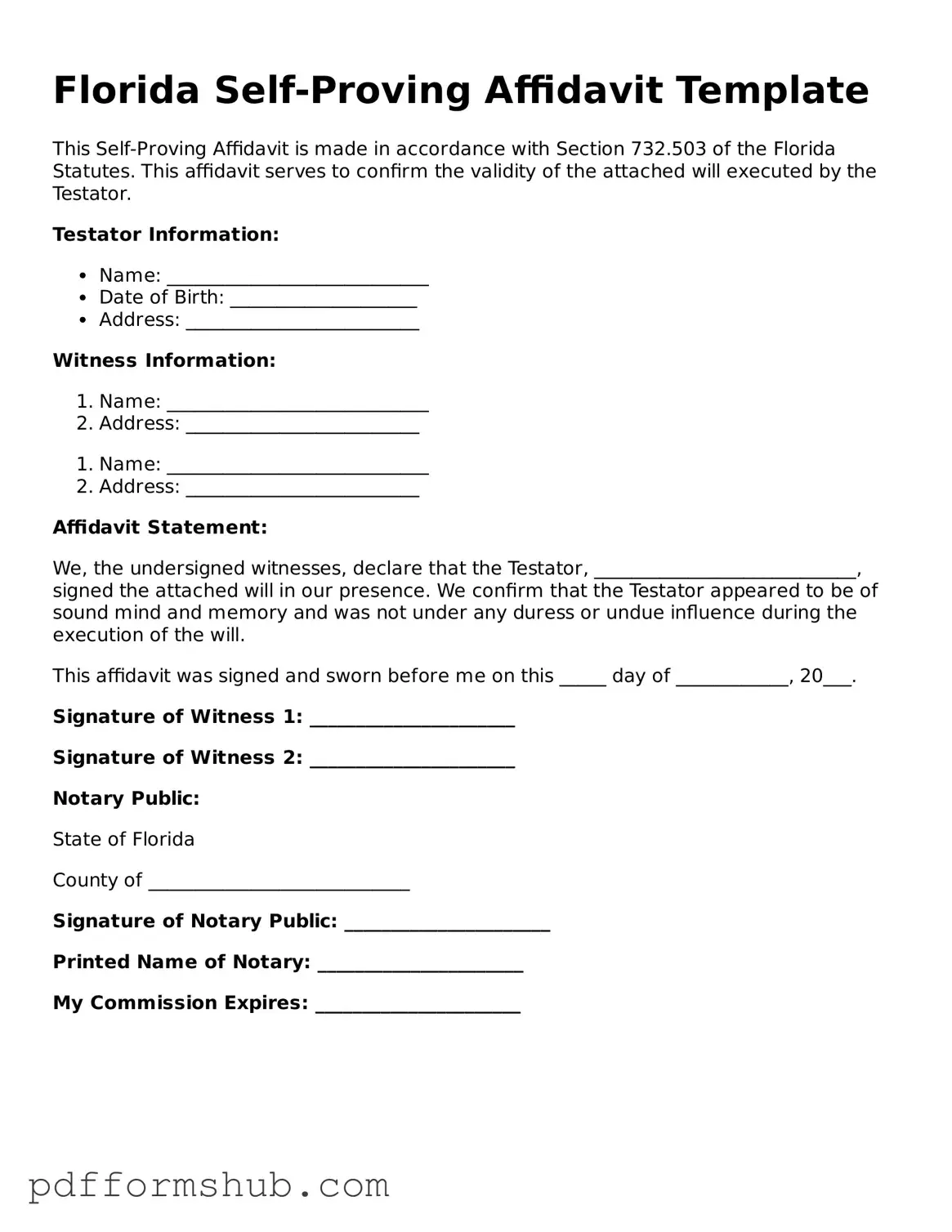Attorney-Verified Self-Proving Affidavit Form for Florida State
The Florida Self-Proving Affidavit is a legal document that allows a testator's will to be validated without the need for witnesses to testify in court. This form simplifies the probate process by affirming the authenticity of the will at the time of its signing. Understanding the importance of this affidavit can help ensure that a loved one’s wishes are honored after their passing.
For those looking to fill out the Florida Self-Proving Affidavit, please click the button below.
Customize Form

Attorney-Verified Self-Proving Affidavit Form for Florida State
Customize Form

Customize Form
or
Free PDF Form
Short deadline? Complete this form now
Complete Self-Proving Affidavit online without printing hassles.